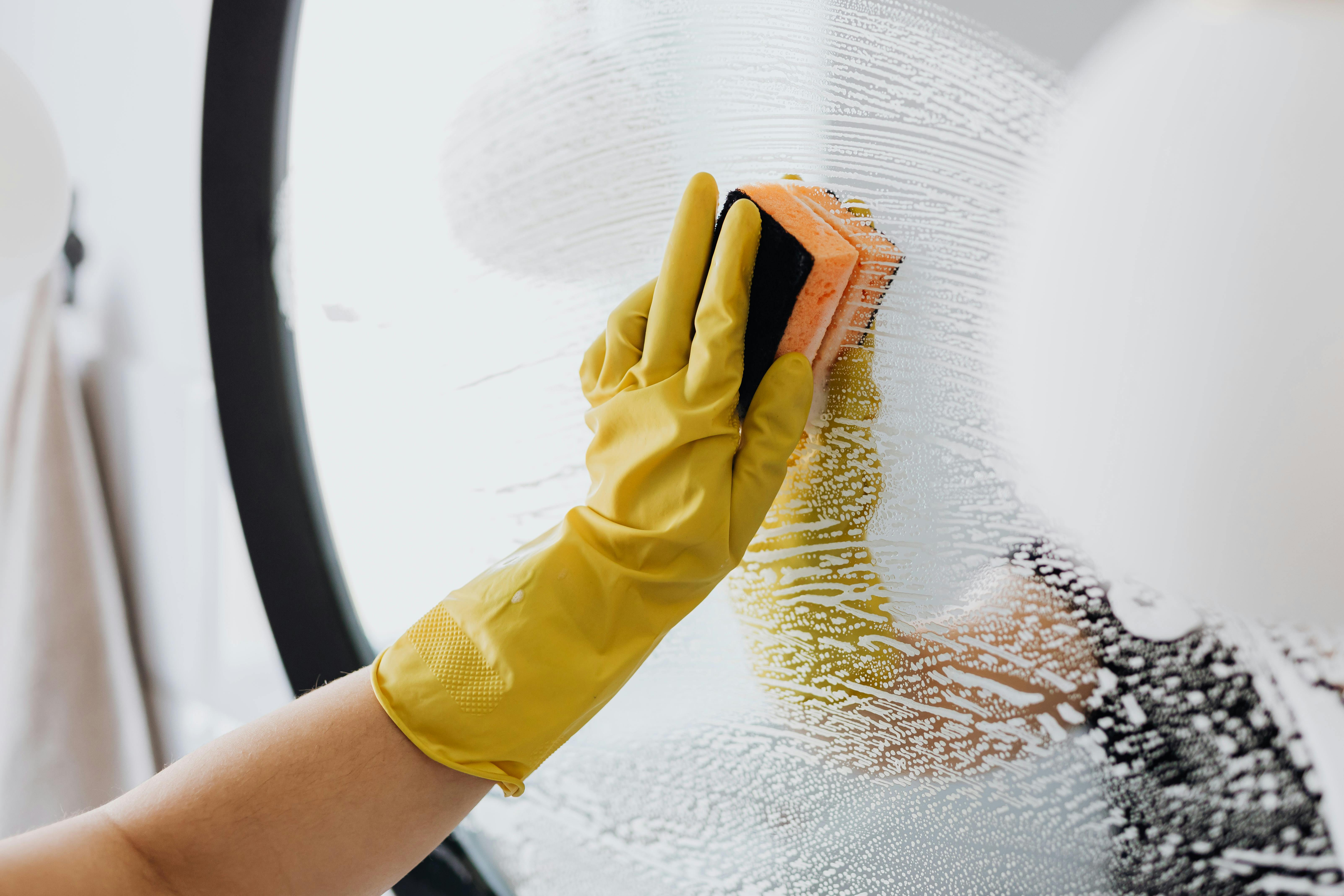Water distillers are an effective way to remove chlorine from water. Chlorine is a common chemical additive used to purify water, but it can have a number of adverse effects on our health. Distillation is a process that involves boiling the water and then collecting the condensed vapor, which results in pure, clean drinking water free of contaminants like chlorine. In this article, we will discuss how a water distiller can help remove chlorine from your drinking water and why it’s an important step in ensuring you get high-quality drinking water.Yes, a water distiller removes chlorine. The process of distillation requires boiling the water to evaporate it and then condensing the vapor back into a liquid form. The chlorine is left behind as a gas and is not present in the distilled water.
What is a Water Distiller?
A water distiller is an appliance that uses heat and evaporation to purify water. It is used to remove impurities, such as bacteria, heavy metals, and chemicals, from drinking water. The process of distillation involves boiling the water and condensing the steam back into liquid form. This removes most impurities that are present in the water.
The distillation process begins by heating up the source water until it turns into vapor. This vapor then rises and passes through a cooling chamber where it condenses back into liquid form. The condensed liquid is then collected in a separate container from the original source of the water. The pure distilled water can then be used for drinking or other purposes.
Water distillers are an effective way to remove impurities from drinking water, and they can be used in both residential and commercial settings. They are often found in laboratories or factories that require high-grade purified water for their operations. Water distillers are also becoming increasingly popular as a means to obtain clean drinking water at home or while traveling.
Most modern models of water distillers feature built
How Does a Water Distiller Work?
A water distiller is a device used to convert contaminated and polluted water into pure, drinkable water. It does this by boiling the water and capturing the resulting vapor from the boiling process, which then condenses back into liquid form. This process removes most contaminants and impurities from the water, making it safe to drink.
The distillation process begins with a chamber that contains the contaminated water. The chamber is heated up, causing the water to boil. As it boils, steam rises up out of the chamber and into a condenser where it cools down and returns to liquid form. This liquid is now distilled water which can be collected in a container or piped directly to its intended use.
The distillation process is effective at removing bacteria, heavy metals, organic compounds, and other contaminants from the water while leaving essential minerals intact. It also eliminates unpleasant tastes, smells, and colors from the water. Some distillers also have additional filters or activated carbon filters that can remove additional impurities from the distilled water if desired.
Advantages of Using a Water Distiller
Water distillers are becoming increasingly popular for those looking for a safe and healthy water source. They offer several advantages over other methods of purifying water, including cost-effectiveness, convenience, and ease of use. Here are some of the benefits of using a water distiller:
Cost-Effective: Water distillers are more cost-effective than purchasing bottled water or other filtration systems. The cost of a distiller is typically much lower than the cost of purchasing bottled water in bulk. Additionally, since you can use the same distiller for many years, you will save money in the long run by not having to replace it every few months or years.
Convenience: With a water distiller, you don’t have to worry about lugging around large containers of water or dealing with complicated installation processes. All you have to do is fill up the reservoir with tap water and turn it on – it’s that simple. Plus, most models come with an automatic shutoff feature so you don’t have to worry about leaving it running all day.
Advantages of Using a Water Distiller
A water distiller is an effective way to purify water, as it removes impurities and contaminants from the liquid. It is also an economical option when compared to buying bottled water, as it can be used repeatedly over time. The process is relatively simple and does not require any special tools or materials. There are also no chemical additives or preservatives used in the distilling process, making it a safe and healthy choice for drinking water. Additionally, distilled water has a neutral pH level and does not contain any minerals or salts, making it great for those who need to maintain a specific diet.
Another advantage of using a water distiller is that it can be used to purify tap water, which may contain pollutants such as lead and other contaminants. Distillation removes these pollutants from the liquid, leaving you with clean, pure drinking water. Additionally, distilled water can be stored in containers for future use without worrying about contamination.
Disadvantages of Using a Water Distiller
One of the main disadvantages

Alternatives to Using a Water Distiller
If you don’t have access to a water distiller, there are other ways to purify the water. Boiling water is one of the oldest and most widely used methods. Boiling water kills most microorganisms, including viruses and bacteria, making it safe for consumption. It also removes any dirt or debris that may be present in the water. However, boiling does not remove chemical contaminants, such as lead or arsenic. To make sure your boiled water is as clean as possible, it’s important to use clean pots and pans when boiling it.
Another way to purify water is by using filters. There are many different types of filters available on the market today. Some filters are designed to remove sediment, while others are designed to remove specific contaminants such as lead or arsenic. It’s important to do your research and find the right filter for your needs. Filters can be expensive but they often last for many years.
A third option is reverse osmosis (RO). This process uses pressure to force water through a semi
How to Choose the Right Water Distiller
Making sure that you have access to clean, safe water is essential for staying healthy and hydrated. One way to ensure your water is free from contaminants is by investing in a water distiller. A water distiller can turn ordinary tap water into clean, pure drinking water. When choosing a distiller, there are several factors to consider.
First, you need to decide whether you want a countertop or whole house water distiller. Countertop distillers are smaller and can be easily stored on the kitchen counter or in a cabinet. Whole house units, on the other hand, are larger and require more space since they need to be installed in the home’s plumbing system.
The type of filtration system used is another important factor when selecting a water distiller. Most distillers use activated carbon filters, which can remove chlorine and other impurities from the water. Reverse osmosis systems are also available for those who want an even higher level of filtration.
Finally, you should look at the cost of ownership for each type of
Removing Chlorine from Drinking Water
Removing chlorine from drinking water has many benefits to the health of individuals and their families. Chlorine is used by water treatment plants to disinfect drinking water, but it can also be harmful in high concentrations. By removing chlorine from drinking water, people can reduce their exposure to potentially hazardous chemicals and enjoy the taste and smell of clean, pure water.
Health Benefits
Chlorine is added to water supplies because it is an effective disinfectant, but when present in too large a concentration it can be harmful to human health. Long-term exposure to chlorine can cause skin irritation and respiratory problems, as well as other potentially serious health issues. By removing chlorine from drinking water, people can reduce their risk of these adverse health effects.
Environmental Benefits
In addition to its potential health risks, chlorine can also have environmental consequences when released into nature. Chlorine-containing compounds are toxic to many aquatic organisms, including fish and amphibians. Removing chlorine from drinking water helps protect the environment by reducing the amount of this pollutant that enters ecosystems.

Conclusion
Yes, water distillers are an effective way of removing chlorine from drinking water. They are also cost-effective and can be used to purify large amounts of water at once. Water distillers remove chlorine from the water by boiling it and condensing the steam back into liquid form, which removes any contaminants that may have been present in the original water.
Water distillers have become increasingly popular in recent years as more people become aware of the dangers posed by chlorine. In addition to removing chlorine, these distillers can also be used to remove other contaminants such as lead, bacteria and viruses. While they may require a little bit of maintenance and upkeep, they offer a great way to ensure your family is drinking safe, clean water.
Overall, using a water distiller is an excellent way to ensure that your family always has access to clean, safe drinking water free from contaminants like chlorine. Whether you are looking for a cost-effective solution or want something that will last for years to come, a water distiller is the perfect choice for providing clean drinking water for your family.

